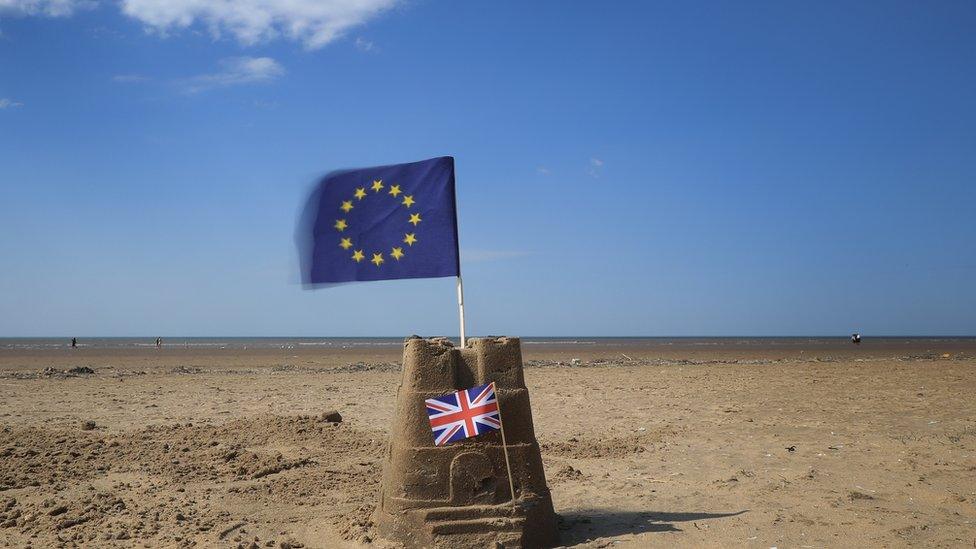Brexit is not the only economic story in town
- Published
- comments

Beyond Brexit - looking to the horizon
Sometimes you need to look at the horizon to understand what is going on at your feet.
The Brexit debate can often appear a little parochial - a "looking at your feet" discussion about the UK economy, which seems to take little notice of the wider global economic context in which Britain sits.
But, looking at the horizon, a different picture can emerge.
And it is one where many more are now arguing that a better performing China, stronger economic data from the European continent and financial markets that have maintained relative resilience could wash away some of the ill-effects of the uncertainty coursing though the British economy.
A rising global tide lifts all boats.
Even if one might have a bit of hole in it.
To be clear, the World Economic Outlook by the International Monetary Fund said that Brexit had thrown "a spanner in the works".
Without it, such had been the "promising signs" for the first half of 2016, that the organisation was ready to upgrade its global growth projections.
'Benign' view
The "spanner" has tempered that optimism, with the IMF now arguing that a slowdown in growth across the advanced economies is likely.
The organisation says it is taking a "benign" view of the Brexit effect on the UK economy based on an assumption that negotiations with the rest of the European Union are cordial and domestic political stability is maintained.
Which is certainly a change of tone from an organisation whose head, Christine Lagarde, said, pre-referendum, that the impact on the UK economy of a Brexit vote went from "pretty bad to very, very bad" and that there could be a recession.
Yes, the IMF has downgraded growth markedly for the UK, particularly next year when its -0.9% revision is only trumped by Nigeria (-2.4%) - a country struggling with the effects of the collapse in commodity prices.
The IMF does not predict a recession - in fact its forecast for 1.3% growth in 2017 is more optimistic than many.
Uncertainty stalks Britain
The organisation does not believe that fears over an economic downturn have passed.
But, now the vote has been taken, now the Bank of England has made it clear it stands ready to loosen monetary policy further to support growth, now the government has signalled it could be willing to borrow more at ultra-low interest rates to invest, the hit to confidence (that essential economic driver) may not be as severe as some believed.
"It is important to underscore the real effects of Brexit will play out gradually over time," Maurice Obstfeld, the IMF's chief economist, said, pointing out that data about the UK economy post June 23 is still "very limited".
Yes, uncertainty stalks Britain.
But on the horizon, a more robust global economy could help medicate away any economic pain.